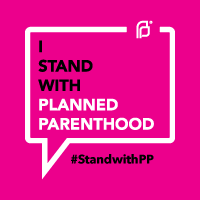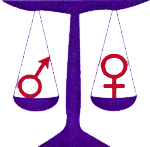by Kate Gorton
 Ninety-five years ago on August 26, women fought for and won the right to vote. This victory came after decades of defending our intelligence and capacity to make informed decisions, a struggle that continued for many women long after the right was won.
Ninety-five years ago on August 26, women fought for and won the right to vote. This victory came after decades of defending our intelligence and capacity to make informed decisions, a struggle that continued for many women long after the right was won.
2015 sure feels like déja-vu.
More than ever in recent history, a woman’s ability to govern her own body is under attack. We are tired of the intimidation tactics and malicious statements being made in an effort to turn back the clock on hard fought wins towards equality. We urge all of you who stand for equality to denounce the recent attacks and false claims made against Planned Parenthood. Freedom of religion provides the right to practice your faith without harm; it does not allow individuals to dictate the health decisions of others. Any effort to limit women’s access to health care is a threat to women’s health and their autonomy.
At Rhode Island NOW, we take action to bring women into full participation in all aspects of public and private life without experiencing barriers based on gender, and that includes any barriers to adequate health care. We are not here to address the slander against Planned Parenthood being perpetuated by political activists with feign concern for women’s health. We are here to remind everyone of the facts and the value Planned Parenthood provides to the community.
The vast majority of Planned Parenthood’s resources are spent on providing general health and wellness services, including: screenings for cervical, breast, and ovarian cancer, physicals and checkups, prescriptions for contraception, and testing and treatment of sexually transmitted infections, which avoids infertility later in life and ensures healthy pregnancies. To claim federal and state dollars are being used for abortion services is completely false. Under federal and Rhode Island state law no public money can be used for such services, therefore all public dollars given to Planned Parenthood go directly to the essential preventive health services laid out above.
It’s ironic. The “pro-life” lobby is surprisingly disinterested in these lives: millions of women, men, and (yes) children are alive and healthy because of the resources Planned Parenthood provides every day. A vote against this agency isn’t a blow to the ominous, faceless threat of abortion. It’s a direct hit to the health of our communities: our neighbors, families, and friends.
The war on women in America is real. The reasons behind it are about power and control, not the health or the well being of women. Rhode Island NOW trusts women, and we trust Planned Parenthood. We stand with them and applaud them for the care and counsel they provide to millions of Americans every year.
*Kate Gorton is a Rhode Island NOW member, writer, and blogger.


